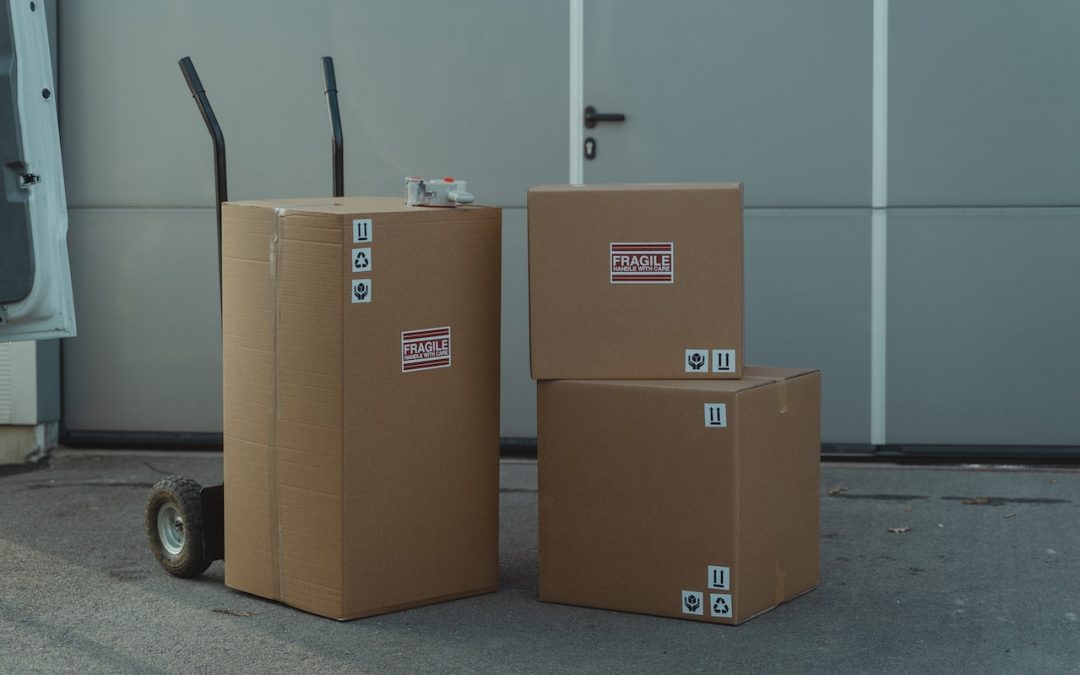Freight descriptions might seem like a formality, but they actually play a vital role in getting your goods to their destination.
Here, we run through everything you need to know about freight descriptions and why they matter.
Freight Descriptions: An Overview
Providing accurate information throughout a shipping journey is pivotal to a streamlined process. And that means every single shipping document needs to be clear and concise.
One such example is detailing the type of goods you’re shipping correctly and accurately. Your goods description tells anyone who reads it what the items are, what they’re made out of and what they’re used for. This description is featured on crucial shipping documents such as the Bill of Lading and the commercial invoice.
(For more about important shipping documents, read this).
The freight description contains the information needed to process and deliver your cargo, and here’s how. What you include in your freight description:
- Provides customs authorities with everything they need to get the correct taxes and duties.
- Is used to check whether the items you’re shipping can be granted access to the country you’re shipping to.
- Is incredibly important for insurance purposes in case your goods become damaged or go missing.
What Your Freight Description Needs To Include
When you’re writing the freight description for your consignment, you need to include as much information as reasonably possible.
To compile a comprehensive freight description, ask yourself these questions:
- What are the goods? Don’t be vague. Every detail matters.
- What are the goods made from? List the materials that go into the final product.
- What are the goods used for?
- Are there any distinctive features? This could be brand names and logos, model numbers, specific shapes, and so on.
- How heavy are the goods?
- What are the dimensions of the goods?
- How much are the goods worth?
- Where are the goods being delivered?
And remember, it must be clear. Smudged writing and descriptions that include numbers, symbols and codes that are not relevant or meaningful can lead to confusion at customs and potentially unnecessary inspections and delays.
How To Write An Accurate Description
Let’s run through some examples so you get a better feel for a good freight description.
Say you’re shipping screwdrivers. Inputting ‘screwdrivers’ into the product description area does not make for an accurate account of your goods. Instead, think about the details.
Are they hex, flathead, torx or Philips screwdrivers? Are the handles different colours? Are they single screwdrivers or packs?
Then, put your answers all together to form an acceptable description like this:
‘7 piece hex screwdriver sets with black handles in clear plastic cases’.
The same logic applies to anything you’re shipping, no matter the size or nature of the goods. So ‘t-shirts’ is far too vague, but ‘yellow ladies cotton t-shirts with red bird logo on the left side’ is good. ‘Washing machines’ = bad; but ‘White Indesit 8kg front-loading washing machines with 1400rpm, dimensions (cm) – H85 x W59.5 x D57.2’ = fantastic.
Why Accurate Information Matters
Giving a clear and honest account of the nature of goods and their specifications is a critical part of any shipping process. Without providing accurate information about your shipments, you risk the following issues arising.
Legal Ramifications
Without an accurate description of your goods, you might encounter serious legal problems.
The moving of hazardous, for example, is governed by three principal regulations, and goods must be declared, packaged and labelled according to their classification. (Read more about shipping hazardous goods here).
If you fail to label hazardous or dangerous goods correctly, you risk breaking the regulations and could receive a fine, prosecution or even a prison sentence.
Delayed Delivery
Navigating customs procedures is essential if you ship goods internationally, and inaccurate freight descriptions can cause huge delays at customs. This is because the description of your goods enables officials to classify the commodity, determine duties and taxes and check for potential import or export restrictions.
Poorly written freight descriptions, whether it’s an incorrect address or vague product description, can cause delays because shipments that cannot be effectively screened for security risks are likely to be held until adequately inspected.
Additional Charges
One of the details you need to include in your freight description is the weight of your cargo.
Inaccurate weight recordings can result in the shipment having to be reweighed, and not only does this slow transportation down, but it can result in extra charges if you undershot the weight of your cargo in the first place. This is because duties and taxes are calculated against the gross weight and classification of the goods.
Lost Or Damaged Cargo
Sometimes, things go wrong during the shipping process. Whether your cargo becomes damaged due to improper lashing, lost at sea during a tumultuous storm or stolen mid-journey, clear, accurate descriptions can help you find or reclaim your goods.
Insurance Claims
Unforeseen events can mess with shipments getting to where they need to be on time or at all. Cargo insurance protects you from financial losses when things go wrong.
A solid, detailed description of your shipment enables insurance providers to provide cover against loss, damage and theft of goods during transit. Coverage varies between providers, but a cargo insurance policy should also cover you for delayed shipment costs and non-delivery by a carrier, as well as natural disasters and force majeure.
Freight Descriptions Are Boring But Important!
Accuracy matters when you’re writing your freight descriptions.
Rather than thinking of the freight description as a vague suggestion of what’s in your freight, redefine it as the information you’d give if you needed to track your cargo down. Because whilst the vast majority of consignments get to their destination safely, you don’t want to take the risk!
Need help working out what important information to include in your freight description? Millennium can help! Take the stress out and get in touch.

